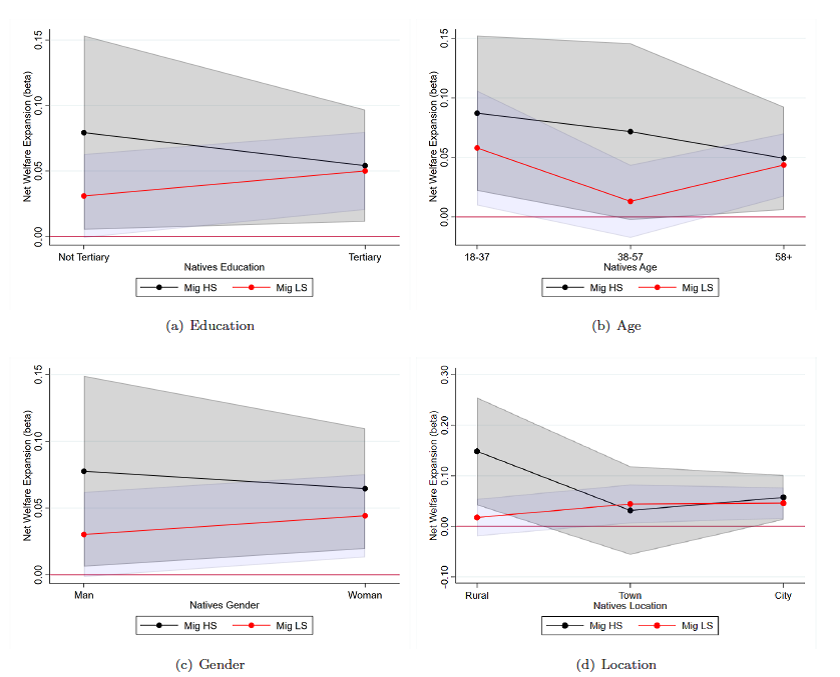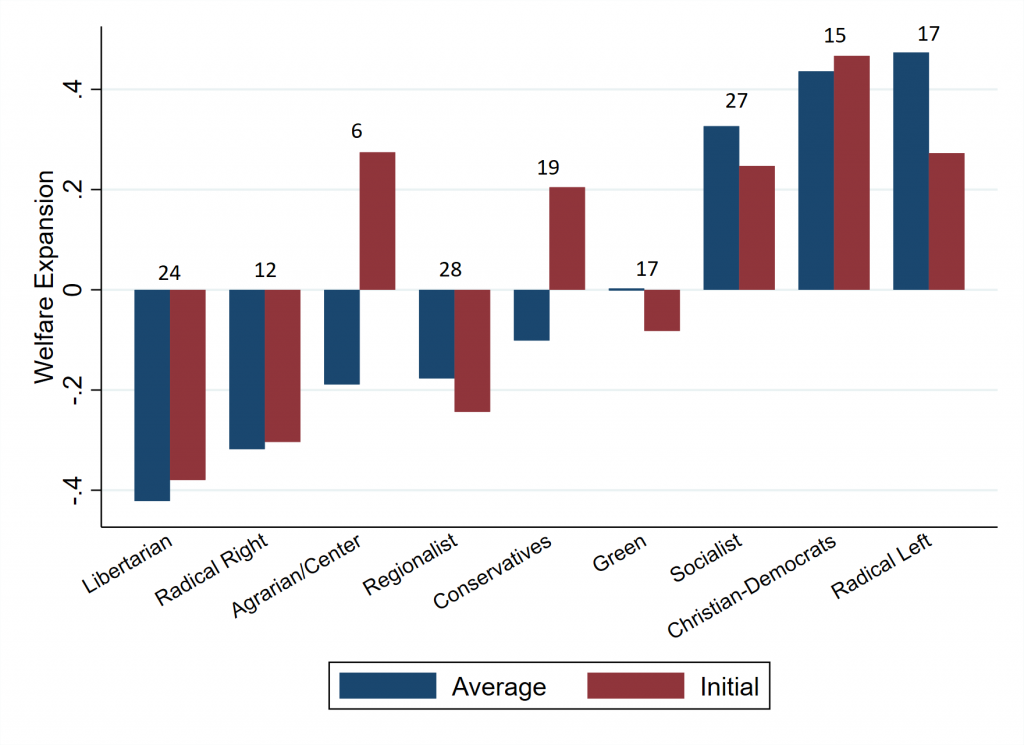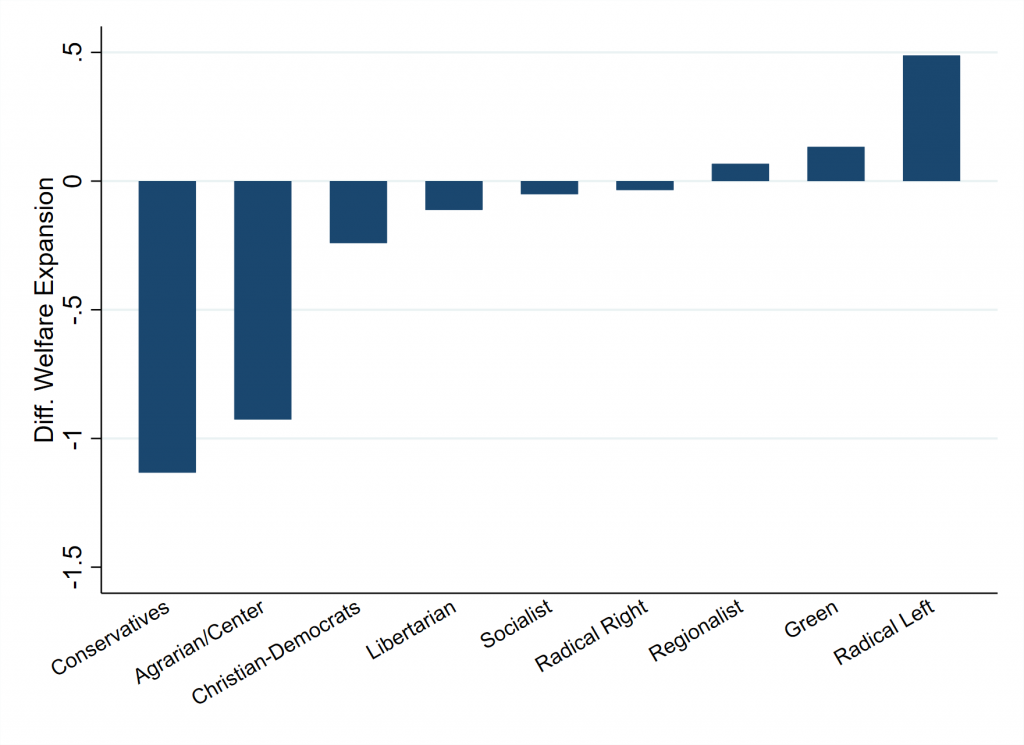By Tibor Besedeš (Georgia Institute of Technology), Erik P. Johnson (Carthage College), and Xinping Tian (Hunan University)
Multilateral environmental agreements come in many flavors. Between 1950 and 2012 over 1100 such agreements have been negotiated between countries. These agreements cover a variety of issues including newer concerns such as global warming and climate change as well as older ones such as acid rain, degradation of habitats, and overfishing. The large number of agreements points to a telling difference between environmental agreements and another type of agreement countries often negotiate, namely the one dealing with international trade. A pair of countries tends to negotiate a single trade agreement that is either comprehensive and covers the entirety of trade between the two (such as NAFTA) or excludes some goods from coverage (many agreements Japan negotiates do not cover agriculture). In the environmental arena, agreements tend to be more issue-specific resulting in the same pair of countries signing many more agreements. For example, prior to 1990 France had ratified 213 multilateral agreements. Among these 179 are between France and Germany, its EU partner, with the agreement underpinning the EU being the sole agreement covering international trade between the two. France and Mexico are both parties to 69 agreements, while prior to Slovakia’s entry into the EU, France had no environmental agreements with Slovakia despite their close proximity to each other. The reasons for the different number of agreements are varied. Some have to do with proximity. France and Germany are neighboring countries and have entered into agreements to deal with transboundary environmental issues such as management of resources spanning the common border or pollution that straddles the border. Given Mexico and France are separated by the Atlantic Ocean, there are significantly fewer environmental issues the two have in common and hence fewer agreements that both are parties to.
The distance between France and Germany on one hand and France and Mexico on the other plays an important role in determining what kinds of environmental agreements they enter. The common border shared by France and Germany generates transboundary issues that need to be managed, be they resource management or habitat preservation. Mexico and France have no such issues. Rather, Mexico and France are much more likely to be signatories of large multilateral agreements that many or all countries in the world sign on to, such as the Montreal Protocol (negotiated to phase out production of substances that deplete the ozone) or the Kyoto Protocol (negotiated to reduce greenhouse gases). France and Germany are also party to such agreements, but also are parties to more agreements that are small in nature, in terms of the number of signatories. These small agreements are between fewer countries as they are designed to deal with specific issues affecting a small set of countries near each other that share common pool resources that need to be managed.
The number of signatories to an agreement is also an important variable, as it may determine how effective and stable agreements are. Several theoretical papers have shown that self-enforcing environmental agreements between many countries will arise when the difference in net benefits between the non-cooperative and fully cooperative outcomes is very small.[1] In other words, large agreements will be formed only when commitments that countries must agree to are small or non-existent. On the flip side, small agreements, between few signatories can be much more effective at dealing with a variety of environmental issues.[2] In other words, large agreements may be an expression of a desire to do something about an issue at some point but entail no immediate commitment to act. Small agreements are more likely to contain binding commitments. Large agreements may be examples of what Scott Barrett characterizes as consensus agreements, which are “broad but shallow”, rather than “narrow but deep,” which tends to be a more apt description of small agreements.[3]
The main thrust of our recently published paper in this area is to understand the economic determinants of environmental agreements.[4] A common concern attributed to many environmental agreements is that they will usually result in additional regulation and new limits on economic activity resulting in economic losses. As such, it is important to understand the extent to which economic factors play a role in countries agreeing to sign an environmental agreement. Given the above discussion, we hypothesize that economic determinants play an important role in determining two countries becoming parties to a small agreement with few other countries. However, when it comes to large, globe-spanning agreements, we hypothesize that economic factors play no role in determining whether two countries sign it.
We use data on multilateral environmental agreements from Ronal Mitchell’s International Environmental Agreement Database Project (2002-2015) on agreements signed between 1950 and 2012.[5] We use these data to examine two aspects: the likelihood that a pair of countries signs a (new) environmental agreement and the number of agreements the pair is currently a party to. We use three groups of explanatory variables. The first are variables used in the international trade gravity literature: sum of GDPs, difference in GDPs, distance, and common language. The second are economic integration variables: sum of imports and existence of a trade agreement between the two countries. The last group of variables are proxies for common pool resources: the length of border between the two countries, whether they are in the same geographic region, or whether they are in neighboring regions. We separately analyze agreement with less than 26 signatories, the median number of signatories of all agreements in our sample, and agreements with more than 68 signatories, which is the 75th percentile in the distribution of the number of signatories across all agreements.
The first step in our analysis is to show that proxies for common pool resources are good proxies. We do so by collecting data on two types of common pool resources we could find that span across countries, namely aquifers and transboundary waters. In both cases, countries that have a longer border, and/or are in the same or neighboring regions, are more likely to either share aquifers or transboundary waters.
In the second step we examine the determinants of the likelihood that countries enter into an environmental agreement. A pair of countries with larger joint GDP but with smaller differences between them (i.e., countries more similar in economic size), that trade more, that are closer in distance, that have a longer border, that share a common language, that are in the same or neighboring regions, and that have a trade agreement are more likely to sign an environmental agreement that has a small number of signatories in virtually any year of our sample. These same factors also cause a pair of countries to be parties to more agreements, except for common language and being in neighboring regions which do not have significant effects. When it comes to large agreements, these same factors either do not have significant effects, or their effect decreases over time.
The conclusion we reach based on our results is that economic factors play a role in determining whether a pair of countries signs a small agreement. In these cases, economic factors matter as small agreements have bite: they usually come with binding commitments that often manifest themselves in costs. On the other hand, when it comes to agreements with many signatories, economic factors play a minor role at best because such agreements entail no costs making it easier for countries to join. The lack of costs associated with the agreement implies that there are few economic considerations countries have to worry about when joining such agreements.
References
Asheim, Geir B., Camilla Bretteville Froyn, Jon Hovi, and Frederic C. Menz (2006), “Regional versus Global Cooperation for Climate Control,” Journal of Environmental Economics and Management, 51 93-109.
Barrett, Scott (1994), “Self-Enforcing International Environmental Agreements,” Oxford Economic Papers 46, 878–894.
Barrett, Scott (2002), “Consensus Treaties.” Journal of Institutional and Theoretical Economics 158 (4), 529-547.
Besedeš, Tibor, Erik P. Johnson, and Xinping Tian (forthcoming), “Economic Determinants of Multilateral Environmental Agreements.” International Tax and Public Finance, doi: 10.1007/s10797-019-09588-z
Gelves, Alejandro, and Matthew McGinty (2016), “International Environmental Agreements with Consistent Conjectures.” Journal of Environmental Economics and Management 78, 67-84.
Hovi, Jon, Hugh Ward, and Frank Grundig (2015), “Hope or Despair? Formal Models of Climate Cooperation.” Environmental and Resource Economics 62(4), 665-688.
Endnotes
[1] See Barrett (1994) and the references therein.
[2] See Asheim et al. (2006), Gelves and McGinty (2016), and Hovi et. al. (2015).
[3] See Barrett (2002).
[4] Besedeš, Johnson and Tian (forthcoming).
[5] http://iea.uoregon.edu/



